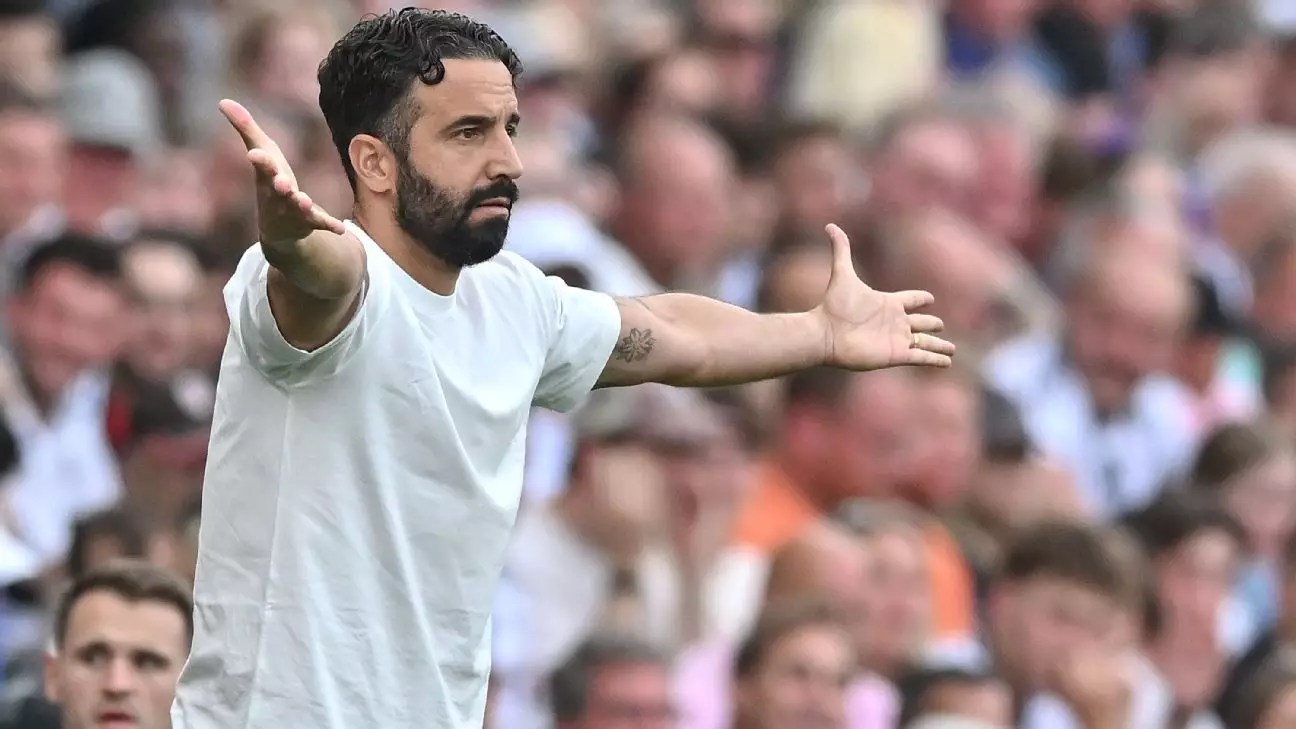In the tumultuous world of football management, few figures exemplify steadfastness as poignantly as Ruben Amorim. Confronted with mounting criticism and relentless pressure following Manchester United’s dismal start to the Premier League season—one of their worst in over three decades—Amorim’s declaration of unwavering commitment to his tactical philosophy is both admirable and audacious. His assertion that “not even the Pope” could sway him from his preferred 3-4-3 formation underscores a leadership style rooted in conviction rather than concession. This stance invites a broader reflection on the importance of staying true to one’s principles amidst adversity, particularly in a sport where short-term results often dictate careers.
Amorim’s stance challenges the often reactive nature of modern football management, where external influences—be they owners, fans, or media—push coaches to abandon their strategic visions at the first sign of difficulty. His refusal to alter his system underlines a deep belief that tactical consistency ultimately breeds trust and confidence within a squad. It’s a gamble, yes, but also a statement that conviction and clarity of purpose can be powerful antidotes to chaos. This approach, however, requires immense patience and resilience, qualities that are frequently tested in high-stakes environments like Old Trafford.
Balancing Principles with Practicality
Despite his unwavering stance on formation, Amorim displays a pragmatic side—indicated by his openness to tweaking other aspects of his team, notably the goalkeeping role. The potential change from Altay Bayindir, who has started all league games this season, to contender Senn Lammens, exemplifies his nuanced approach. He emphasizes that no player’s position is sacred, asserting a culture where merit and current form dominate decision-making. This balancing act—staunch in tactical identity yet flexible in personnel choices—can be a key trait of effective leadership.
Amorim’s focus remains squarely on winning matches, not on adhering to rigid doctrines. His philosophy suggests that the end goal justifies the means, whether that means sticking to a system he believes in or rotating players to maximize match results. This perspective aligns with a results-oriented mindset, demonstrating that leadership in football isn’t about dogmas but about how well a manager adapts and executes in pursuit of victories.
Resilience as a Core Competence in Turbulent Times
Manchester United’s current predicament—a season marred by poor results—places immense pressure on Amorim’s shoulders. Yet, his declaration of unwavering adherence to his tactical beliefs can serve as a rallying cry, not just for his squad but for the supporters craving consistency in strategy amidst chaos. His resolve signals that true leadership involves weathering storms without succumbing to external pressures, trusting in a long-term vision rather than chasing immediate relief at the expense of identity.
The coach’s approach also raises questions about the nature of authority and influence within a football club. Will the persistent loyalty to his system inspire his players or alienate them if results continue to falter? It’s a delicate balance. Nonetheless, Amorim’s words reflect a critical insight: leadership demands conviction, especially in moments of crisis. Authenticity and confidence in one’s principles can foster a resilient mindset that ultimately pushes teams through adversity.
Implications for Manchester United’s Future
As United prepares for Saturday’s fixture against Chelsea, the focus extends beyond tactics—it’s about the broader narrative of leadership and resilience. Amorim’s willingness to stand firm on his beliefs could either be the foundation of a rebuilding phase or a costly stubbornness if results do not improve. His approach suggests a belief that sustainable success stems from strategic consistency, not reactive panic. In the context of Manchester United’s rich history, such an attitude might be precisely what is needed to navigate turbulent waters and restore stability.
Moreover, his readiness to modify personnel decisions—particularly around the goalkeeper position—indicates a flexible mindset that understands the importance of talent and form over dogma. This implies that while his tactical preferences remain steadfast, he recognizes the necessity of evolution within the squad’s roster, which may be critical in turning the tide.
Ultimately, Amorim’s leadership style embodies a bold assertion: that conviction, combined with strategic adaptability, holds the power to transform not just a team’s playing style but its very identity. If he can endure the storm and maintain this unwavering belief, Manchester United might find its greatest strength—not in abandoning its principles, but in reaffirming them through persistent effort and genuine conviction.


Leave a Reply